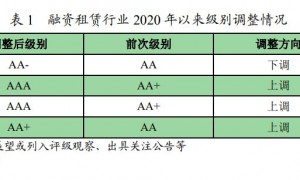The leasing industry in the modern sense was developed in the 1950s in the USA. In the territory of Serbia, financial leasing operations were legally regulated by the provisions of the Law on Financial Leasing adopted in May 2003. Amendments and Supplements to this Law, whereby the National Bank of Serbia became the institution that issues licenses for the performance of financial leasing operations, grants approval for naming management bodies, supervises lessor’s operations, and undertakes corrective measures, were adopted in July 2005.
Financial leasing is the activity in which the lessor:
concludes a delivery contract with the supplier of the lease object (whereby he/she obtains the ownership right of the lease object), with the lessee determining both the supplier and the lease object,
concludes with the lessee the financial lease contract whereby he/she transfers to the lessee the authorization for keeping and using the lease object over a predetermined term, and the lessee pays the agreed fee in agreed installments.
The lease object may be a durable good, and the minimum deadline for the conclusion of the financial lease contract is two years.
The ownership of the lease object, over the whole term of the financial lease contract belongs to the lessor, and this contract may envisage the option right, i.e. the right of the lessee to purchase the lease object upon the expiry of the contract. The lessee has the right to use the lease object unimpededly during the validity of the financial lease contract, to derive all benefits from the object, and to bear all risks and costs arising from the ownership right, although he/she is not the owner of the object in the formal and legal sense.
Financial leasing represents one manner of financing investments into fixed assets, or movable durable goods, and is the alternative to own funds, banking credits and borrowing through the issue of debt securities. This manner of financing is often compared to banking credits as they have similar characteristics (repayment at predetermined installments, interest, manner of bookkeeping...). However, the most significant characteristics of financial leasing compared to other forms of financing are the following:
financing is always approved for a particular object,
the procurement of the object is always performed by the lessor and not the lessee,
the lessor owns the lease object over the whole term of the lease contract,
the lease object represents at the same time the means of securing payment, which is the reason why lessors often do not demand other securement funds,
the lessor is fully secured in the event of destruction or damage of the object (object insurance), non-payment of the lease fee (refund of the lease object by special procedure), bankruptcy or liquidation of the lessee (right to separate recovery)
Advantages of financial leasing
Leasing is a very important manner of financing the economy. The best indicator of the importance of leasing is the rate of investment share in fixed assets financed through leasing in total investments in fixed assets of an economy. According to Leaseurope data for 2004, this rate touches even 24% (in Great Britain and Ireland), witnessing a constant upward trend since 2000. The share of leasing in the provision of fixed assets in countries of central and eastern Europe is also substantial, averaging at 18.5%. Since this is a new form of financing in our country (the greatest number of lessors was founded in 2003), this indicator for 2004 in Serbia stands below 4%, according to some estimates.
Financial reasons. The key advantage of financial leasing in relation to other forms of financing stems from the lessor being a formal-legal owner of the lease object over the term of the lease contract, which enables him to run a greater risk in terms of potential client’s creditworthiness. This type of financing is therefore adequate for newly founded, small and medium-sized enterprises, entrepreneurs and all users with a weaker credit worthiness, i.e. the users who do not dispose of means they could offer in the name of securing the loan. Namely, the lessor brings the decision on the approval of financing not only on the basis of the user’s creditworthiness (which is a dominant factor when deciding on the approval of a banking loan and determining the securement funds required by banks), but also on the basis of the estimate of the level of marketability of the lease object, i.e. the possibility of selling the object in the market easily and at a realistic price.
Simpler procedure. The procedure of granting the approval of financing is most often shorter compared to traditional financing forms. The reason lies in the fact that additional securement funds (e.g. mortgage) are most often not required, and lessors often have a business cooperation with suppliers of lease objects. All this leads to total reduction in transaction costs.
Lessor’s specialization and experience. The additional advantage of financial leasing, particularly in case of newly founded enterprises, is the lessor’s possibility to acquire the object under more favorable conditions, on the basis of the cooperation with the supplier of the lease object and the turnover the supplier thereby realizes. Besides, the lessor and the lessee may, within this arrangement, also decide on the maintenance, servicing, replacement of parts, technical-technological upgrade, training of lessor’s staff for the use of the lease object, etc.
Rights and obligations of participants in financial leasing
Rights, obligations and responsibilities of the lessor:
• obligation of acquiring the lease object according to the lessee’ specification;
• responsibility towards the lessee for legal deficiencies of the lease object (if the third person exercises a right over the lease object, which excludes, diminishes or limits lessee’s unimpeded possession of the object) and responsibility towards the lessee for suffered damages in this respect;
• the right to the contract termination if the lessee does not pay the agreed fee, right to return the lease object and the reimbursement of damages in this respect;
• the right to the recovery of the lease object (right to separate recovery) from the bankruptcy estate, in the event of the lessee’s bankruptcy;
• a special procedure of taking over the lease object in possession in the event of the failure to pay the lease fee – the court is obliged to adopt a decree on taking away the lease object from the lessee, and the procedure of taking away the lease object is conducted within 3 days following the day of the adoption of the decree.
Rights, obligations and responsibilities of the lessee:
• the obligation of taking over the lease object in the manner, at time and place envisaged by the contract;
• the right to financial lease contract termination if the object has not been delivered in line with the contract (if the supplier does not deliver the object, delivers the object with delay or if the object has a material deficiency), the right of damage compensation and termination of the fee payment until the delivery in line with the lease contract;
• subsequent changes of the delivery contract with whose contents the lessee agreed, do not have effect towards the lessee, unless the lessee accepts them;
• responsibility for the damage caused by using the lease object;
• obligation to maintain the lease object;
• obligation to pay the lease fee;
• responsibility for sudden devastation or damage of the lease object from the moment of taking over the object;
• responsibility to insure the lease object.
Rights, obligations and responsibilities of the supplier of the object:
• obligation of delivery of the lease object to the lessee in the manner, at time and place envisaged by the delivery contract;
• responsibility towards the lessee for material deficiencies of the lease object.
Financing procedure through financial leasing:
• choice of the object and receipt of the supplier’s offer;
• supplier’s offer, alongside the financing request, is submitted to the lessor, and the lessor prepares the financing offer (informative offer). In some cases, the supplier of the lease object may prepare the lessor’s informative offer;
• the lessor is presented with the documentation (the list of needed information may be found on lessor’s internet pages) needed for the adoption of the decision on granting or refusing the financing request;
• if the request has been approved, the signing of the financial lease contract with the lessor ensues;
• upon signing the contract, the share and other costs envisaged by the contract are paid;
• taking over of the lease object from the supplier;
• payment of lease fee installments.
Financial lease registry
The Business Registry Agency keeps the financial lease registry in line with the law. The financial lease registry opened on January 4, 2004 and it represents a unique centralized electronic database containing data on the financial lease contract, amendments and supplements to these data, notes of disputes regarding the lease object and the termination of the financial lease contract.
The lessor is obliged to submit the request for the entry of the financial lease contract within 7 days following the day of the delivery of the lease object, or the request for the entry of amendments and supplements to financial lease contract data, as well as the deletion of data from the registry within 7 days following the moment of the occurrence of facts causing the amendment, supplement or the deletion of data. The said requests may also be submitted by the lessee, if specified in the financial lease contract.
The purpose of the existence of the registry and entry of the financial lease contract in the registry is the availability of data on concluded lease contracts (and lease objects) to the general public. The entry of the financial lease contract into the registry implies that third persons are acquainted with the existence of the lease object and that no one may claim that they were not familiar with financial leasing data entered into the registry.
Data entered into the registry do not represent a proof of the existence of property or other rights over the lease object, nor of the validity of any legal business. All data entered into the financial lease registry are available on the internet page of the Business Registry Agency, and may be accessed through the following link: http://www.apr.sr.gov.yu/APRWeb/default.aspx
|
 融资租赁行业2023年回顾与2024年展望
联合资信主要观点:
2023年10月下发了金融租赁公司管理办法,体现了监管机构对
融资租赁行业2023年回顾与2024年展望
联合资信主要观点:
2023年10月下发了金融租赁公司管理办法,体现了监管机构对
 2023年租赁业调查报告(毕马威)
毕马威连续第5年发布租赁业调查报告。本刊结合租赁行业热点话题提供专业洞察,并汇总
2023年租赁业调查报告(毕马威)
毕马威连续第5年发布租赁业调查报告。本刊结合租赁行业热点话题提供专业洞察,并汇总
 2021年度融资租赁业调查报告
2021年度融资租赁业调查报告
下载地址:原链接
2021年度融资租赁业调查报告
2021年度融资租赁业调查报告
下载地址:原链接
 2021年融资租赁行业信用风险展望
一、融资租赁行业 2020 年信用风险回顾
1.信用等级迁移及风险事件回顾
202
2021年融资租赁行业信用风险展望
一、融资租赁行业 2020 年信用风险回顾
1.信用等级迁移及风险事件回顾
202
 《金融租赁行业发展报告(2007-2017)》
金融租赁行业发展报告(2007-2017)
《报告》主体内容分为导言、发展篇、环境篇、资产
《金融租赁行业发展报告(2007-2017)》
金融租赁行业发展报告(2007-2017)
《报告》主体内容分为导言、发展篇、环境篇、资产